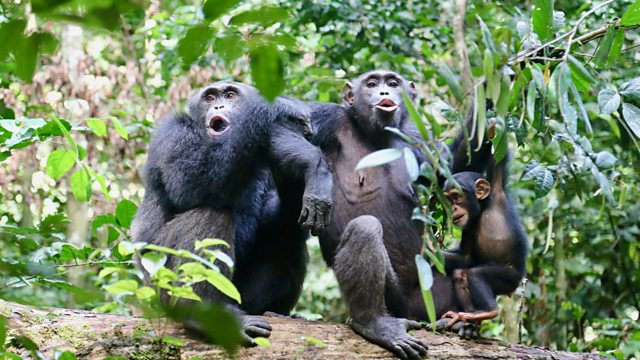
How Humans are Changing Chimpanzee Behaviour
Interactions with humans lead to chimpanzees displaying less complex behaviours. And we ask: is shyness written in our genes, or more to do with our upbringing?
The world’s largest study of chimpanzee behaviour has come to the rather negative conclusion that interactions with humans decrease the range of chimpanzee behaviours and may interfere with the way in which chimp parents pass skills to their offspring.
Chimps learn skills from swimming to digging for insects with sticks and exhibit a wide range of vocal communications. In environments where they may be living near human such skills or behaviours are displayed less and may be replaced altogether with more human related activities such as raiding crops or rubbish dumps.
And in Mozambique the civil war of the 1990s had huge implication for animals in the Gorongoza national park, eliminating many of the large predators there. A study of a small deer species in the park has shown how prey animals can change their behaviour following a decrease in predators. In this case becoming less fearful.
A racing heart, blushing, feeling sick - most people experience symptoms of shyness in certain situations. But some of us are much shyer than others, and if it gets on top of you, shyness can really limit what you get out of life.
That’s why this week’s listener got in touch to ask why he’s shy: is it genetic, or more to do with his upbringing? Is there anything he can do to overcome his shyness – and on the other hand, could being shy actually have some benefits?
(Photo: Chimpanzees in the Taï National Park, Côte d'Ivoire vocalise with another party nearby. © Liran Samuni/Taï Chimpanzee Project)
Last on
Broadcasts
- Sun 10 Mar 2019 15:06GMT����ý World Service Americas and the Caribbean
- Sun 10 Mar 2019 16:06GMT����ý World Service News Internet
Podcast
-
![]()
Unexpected Elements
The news you know, the science you don't

